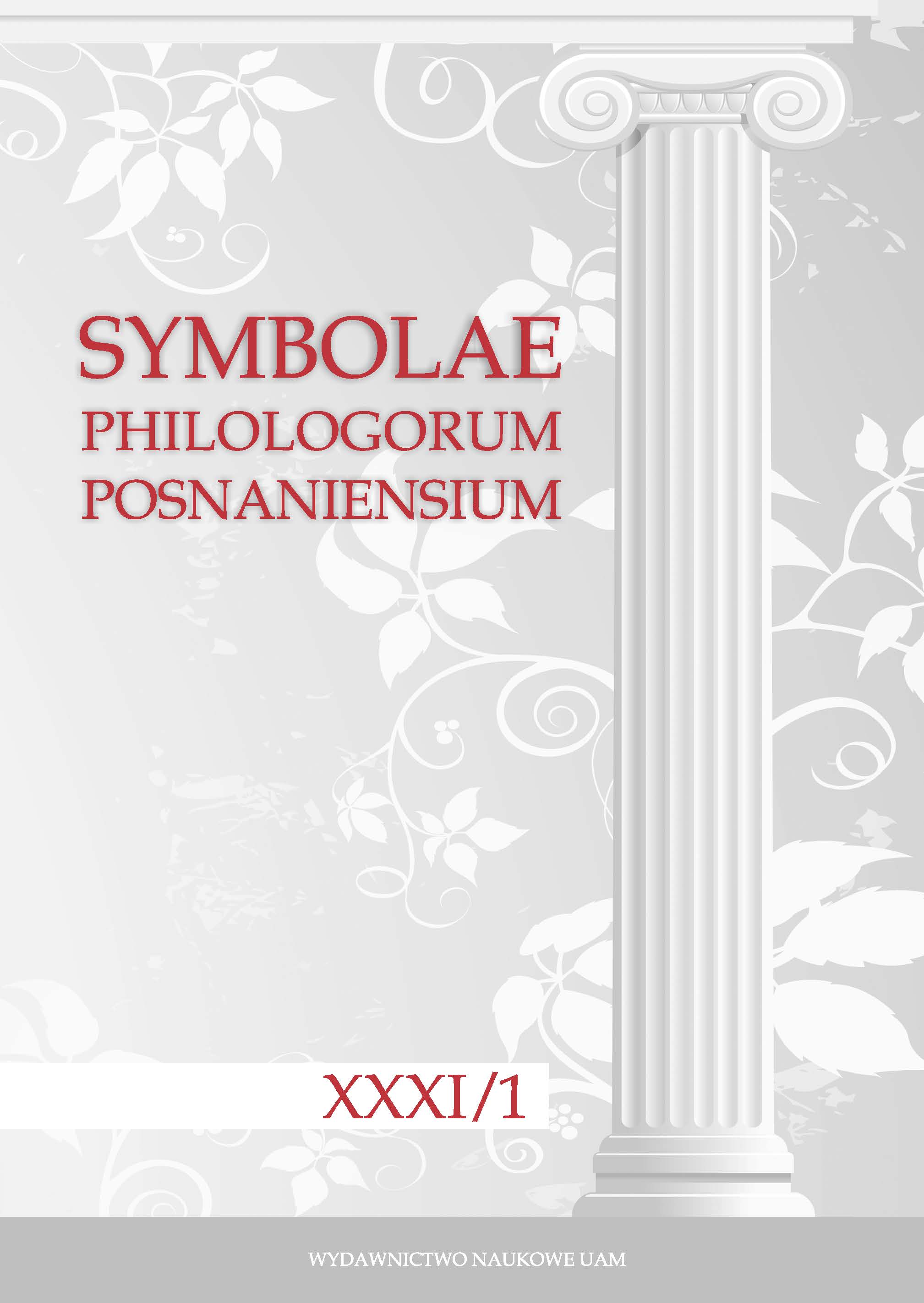„Vectes” i „vestes”. Dwie lekcje antycznego tekstu i dwie różne imitacje
Vectes and vestes. Two lessons of ancient text and two different imitations
Author(s): Zofia GłombiowskaSubject(s): Language and Literature Studies
Published by: Uniwersytet Adama Mickiewicza
Keywords: votive epigram; Roman elegy; militia amoris; frangere postes; farewell to Venus and love
Summary/Abstract: The article shows the Horatiann ode III on the background of the votive epigram and in reference to the custom and at the same time the topos of „winning” by violence the house of a lover (frangere postes) and the way of imitating this ode by Filip Buonaccorsi Kallimach in the XXVII elegy and by Jan Kochanowski in the elegy II 11 (in the version preserved in the so-called Osmólski’s manuscript). Callimachus had the text of the ode with the lesson of vestes in verse 7, Kochanowski with the lesson of vectes. As a consequence, in Kallimach’s elegy there is no topos of breaking the door, but the motif of the victorious militia amoris remains, while Kochanowski uses the topos of frangere postes, but departs with love, Lydia and the goddess Venus not with the satisfaction of a victorious soldier, but similarly to Propertius in anger and with a feeling of experienced harm.The article shows the Horatian ode III 26 on the background of the votive epigram and in reference to thecustom and at the same time the topos of „winning” by violence the house of a lover (frangere postes) andthe way of imitating this ode by Filip Buonaccorsi Kallimach in the XXVII elegy and by Jan Kochanowskiin the elegy II 11 (in the version preserved in the so-called Osmólski’s manuscript). Callimachus had the textof the ode with the lesson of vestes in verse 7, Kochanowski with the lesson of vectes. As a consequence,in Kallimach’s elegy there is no topos of breaking the door, but the motif of the victorious militia amorisremains, while Kochanowski uses the topos of frangere postes, but departs with love, Lydia and the goddessVenus not with the satisfaction of a victorious soldier, but similarly to Propertius in anger and with a feelingof experienced harm.
Journal: Symbolae Philologorum Posnaniensium Graecae et Latinae
- Issue Year: XXXI/2021
- Issue No: 1
- Page Range: 85-105
- Page Count: 21
- Language: Polish

